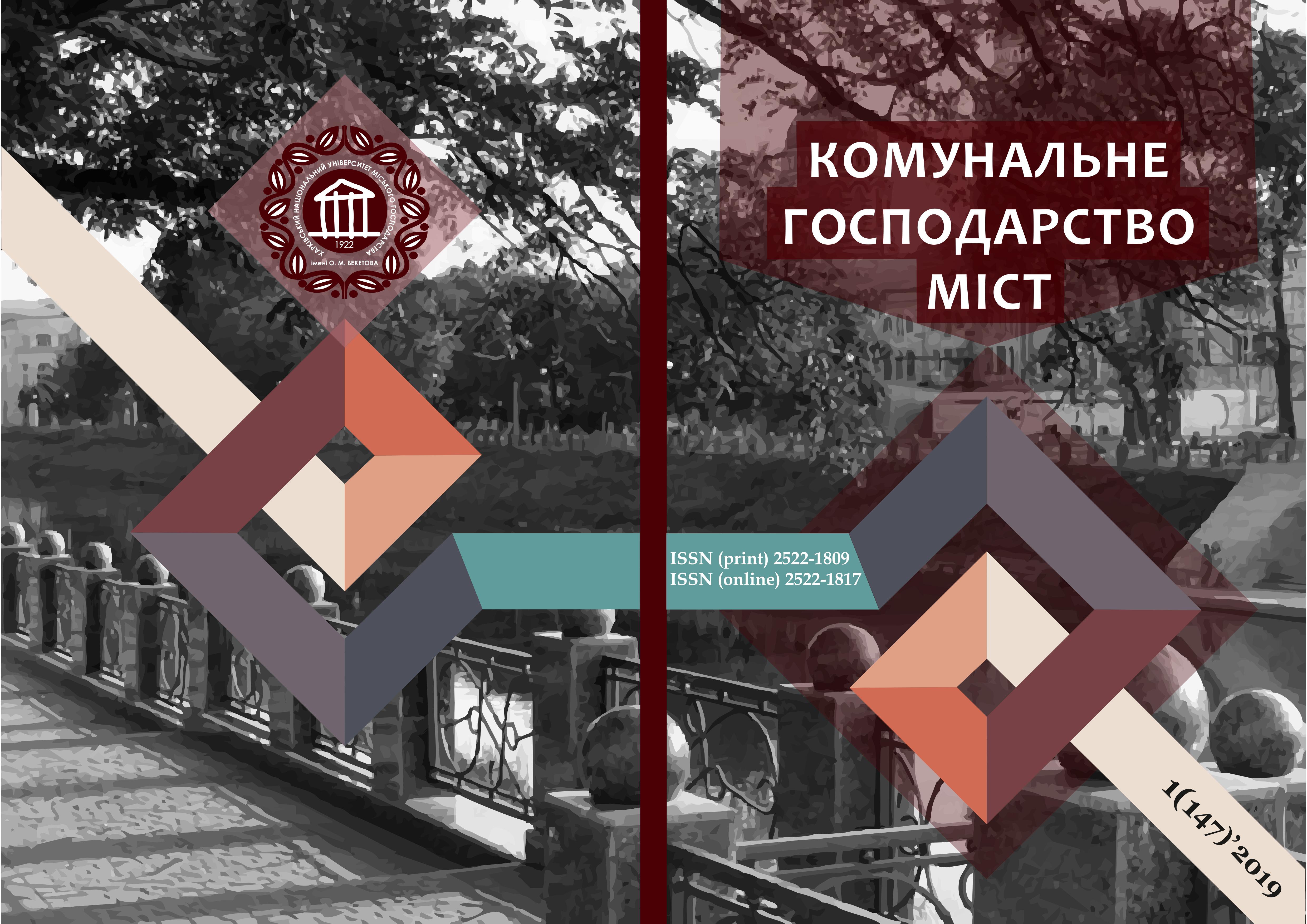FACTORS AND CONDITIONS INFLUENCING THE FORMATION OF THE TECHNICAL REGULATION SYSTEM IN CONSTRUCTION
Array
Keywords:
technical regulation in construction, environment of human life, factors for the formation of regulatory support.Abstract
The system of technical regulation in construction, like any other system, is influenced by various factors both from the outside and from the middle. The article formulated and structured factors and conditions that influence the formation and functioning of the system of technical regulation in construction in creating a safe environment for human life. In the sphere of valuation of elements of the urban environment of the urban environment natural, natural-man-made, anthropological factors and human needs in the urban environment are investigated. The main attention is paid to the creation of a complete system of technical regulation in construction within the boundaries of a specific state-Ukraine. When studying the mutual influence and interconnections between internal and external groups of factors and conditions, the peculiarities of the system of technical regulation of the country are taken into account. In order to identify patterns, interconnections and interactions between internal and external groups of factors and conditions of influence on the formation of a system of technical regulation in construction, it is suggested to form a matrix of their relations. This provides the opportunity to create a complete legal basis for the operation of technical regulation mechanisms at all levels of the industry. It is shown that the state budget funds can be used for the work of the system, but an important component of its financing is the funds of public professional organizations, manufacturers of construction products and other sources permitted by law. It was established that improvement of the system of technical regulation in construction requires the creation of an effective structure of the authorities for cooperation with the professional community of the construction complex. At the same time, the development of national policy in the field of creating a safe environment belongs to state authorities. The primary task for the state authorities in creating the appropriate prerequisites for ensuring the functioning and development of the technical regulation system in construction is determined. At the same time, it is necessary to take into account the inadmissibility of duplication of certain functions by different institutions and organizations. Separately, the integration factor into the regional and international legal space is considered, in which for all EU member states general requirements for building materials, products and building constructions have been developed. This is due to the course of Ukraine on the convergence of the national regulatory framework with the normative base of the European Union.
References
Isaenko, D.V. (2018) Concept of technical regulation in construction. Modern problems of architecture and urban planning, 52, 439-448.
Omelyanenko, M.V. (2005) Methodological bases of standardization of elements of the urban environment: Dis. Dr. Tech. sciences. K.: KNUBA.
System of reliability and safety of construction objects. Load and impact. Design standards: DBN V 1.2.-2.2006. – [Valid from 01/01/2007]. – Kyiv: State Enterprise «Ukrarhbudinform». 2007. – 60. – (State construction norms of Ukraine).
Guidelines for the inspection of buildings and structures for the determination and assessment of their technical condition: DSTU-N B V.1.2-18: 2016. – [Valid from 01/04/2007]. – Kyiv: State Enterprise «Ukrarhbudinform». 2017. – 45. – (National standard of Ukraine).
Technical regulation in construction. An Analytical Review of World Experience (2010). Snip Innovative Technologies; hands Gray A. Chicago: SNIP, 889 s. Il.
Downloads
Published
How to Cite
Issue
Section
License
The authors who publish in this collection agree with the following terms:
• The authors reserve the right to authorship of their work and give the magazine the right to first publish this work under the terms of license CC BY-NC-ND 4.0 (with the Designation of Authorship - Non-Commercial - Without Derivatives 4.0 International), which allows others to freely distribute the published work with a mandatory reference to the authors of the original work and the first publication of the work in this magazine.
• Authors have the right to make independent extra-exclusive work agreements in the form in which they were published by this magazine (for example, posting work in an electronic repository of an institution or publishing as part of a monograph), provided that the link to the first publication of the work in this journal is maintained. .
• Journal policy allows and encourages the publication of manuscripts on the Internet (for example, in institutions' repositories or on personal websites), both before the publication of this manuscript and during its editorial work, as it contributes to the emergence of productive scientific discussion and positively affects the efficiency and dynamics of the citation of the published work (see The Effect of Open Access).

